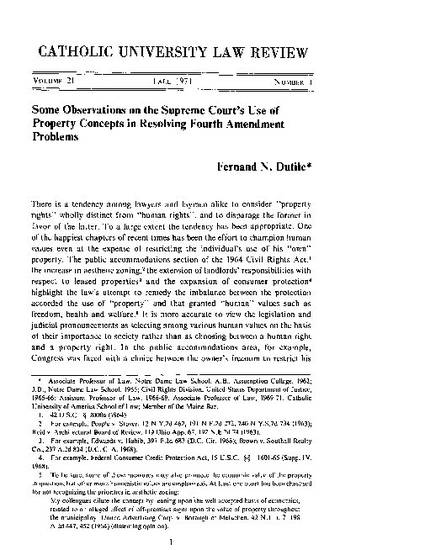
There is a tendency among lawyers and laymen alike to consider "property rights" wholly distinct from "human rights", and to disparage the former in favor of the latter. To a large extent the tendency has been appropriate. One of the happiest chapters of recent times has been the effort to champion human values even at the expense of restricting the individual's use of his "own" property. The public accommodations section of the 1964 Civil Rights Act, the increase in aesthetic zoning, the extension of landlords' responsibilities with respect to leased properties and the expansion of consumer protection highlight the law's attempt to remedy the imbalance between the protection accorded the use of "property" and that granted "human" values such as freedom, health and welfare. A It is more accurate to view the legislation and judicial pronouncements as selecting among various human values on the basis of their importance to society rather than as choosing between a human right and a property right.
This article will analyze the use of property concepts by the Supreme Court in fourth amendment cases and, in the light of its decisions, assess the true role of the property concept in delimiting the scope of the amendment.
Five basic areas involving an interplay between property concepts and search and seizure have been dealt with by the Supreme Court and shall be considered in order: (I) the property interest as it bears upon whether a search took place and, if so, whether a third party consent was effective; (2) the interest of the sovereign in the chattel searched; (3) the property interest as it bears upon the scope of search; (4) the interest of the sovereign in the article seized; (5) the property interest as it bears upon standing to assert the unlawfulness of a search and seizure.
It is submitted that in the area of search and seizure, at least, one cannot always say where the "property" right ended and the "human" right began. It may well be that the second often dies with the first.
Available at: http://works.bepress.com/tex-dutile/9/
